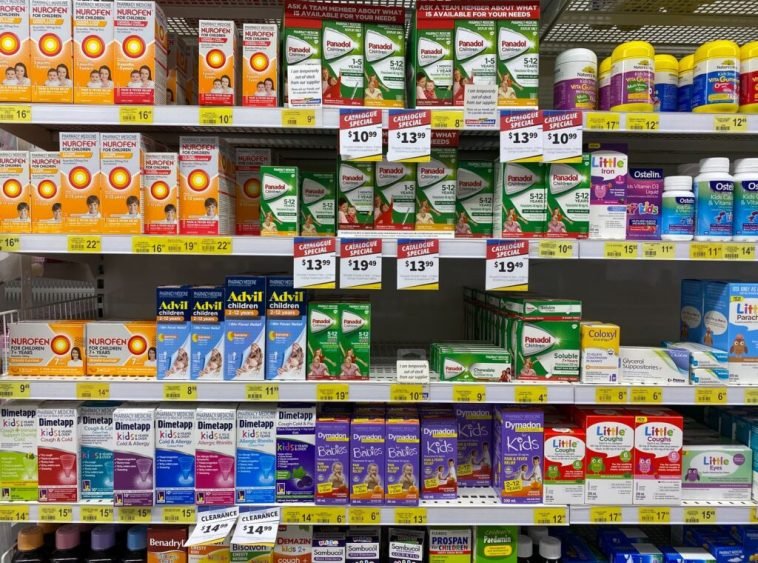Thinking about starting a pharmacy in Nigeria? Let’s be honest. You’re not just considering another business. You’re looking at a venture that sits at the critical intersection of healthcare, commerce, and community trust. It’s a meaningful and potentially lucrative path, but the bridge from idea to open doors is built on specific, often daunting, steps.
I’ve spent years building online businesses and guiding others, and the principles of a solid foundation are the same, whether it’s digital or brick-and-mortar. A pharmacy, however, comes with its own rulebook. This isn’t about theory. This is a practical, step-by-step guide drawn from the real-world processes that separate a dream from a functioning, compliant, and profitable business. Let’s walk through it together.
Why a Pharmacy Business Makes Sense Now
Nigeria’s growing population and increased health awareness create a consistent demand for pharmaceutical products. It’s a essential service, which provides a level of stability many businesses don’t have. But that doesn’t mean it’s easy.
Getting it right means navigating regulations meticulously, understanding your community, and running a tight operational ship. If you do, you build an asset that serves and grows for decades.
Your Step-by-Step Launch Plan
Step 1: Solidify Your Foundation: Knowledge & Capital
You can’t wing this. Start with deep research. Understand the laws governed by the Pharmacists Council of Nigeria (PCN). You must know the rules before you can play the game.
Next, be brutally honest about money. Create a detailed budget. Costs include:
- Licensing & Registration: PCN permit, premises registration, CAC business registration.
- Premises: Rent, renovation, shelving, signage, security.
- Initial Stock: Your first inventory purchase.
- Operational Costs: Salaries, utilities, software, for at least 6 months.
A common question is, “Can I start a pharmacy without being a pharmacist?” The direct answer is no, legally. You must have a registered pharmacist as your superintendent. As the business owner, you can be the investor/entrepreneur, but a licensed pharmacist must be in charge of the technical aspects. Factor their salary or partnership into your plan from day one.
Step 2: Craft a Lean, Focused Business Plan
Your business plan is your GPS. It doesn’t need to be a 50-page novel, but it must clarify your path.
- Define Your Niche: Will you be a community pharmacy in a residential area? Focus on maternal health? Offer specialized diabetic care? A niche helps you stock smarter and market directly.
- Know Your Competition: Visit other pharmacies in your target area. What are they missing? What can you do better?
- Map Your Sourcing: Identify reputable pharmaceutical distributors and wholesalers. Your product quality is non-negotiable.
- Project Your Finances: Simple projections for 12 months. How much do you need to sell daily to break even?
Step 3: Handle the Legal and Regulatory Framework
This is the most critical phase. Cutting corners here will shut you down.
- Register Your Business with CAC: Choose a unique name and incorporate.
- Apply for PCN Premises Registration: This is specific to your location. The PCN will inspect the site to ensure it meets their standards for space, storage, and facilities.
- Secure Other Necessary Permits: This includes a license from the State Ministry of Health. Your superintendent pharmacist will handle the specific pharmaceutical licensing.
- Get Your Tax Identification Number (TIN): Essential for opening a business bank account and tax compliance.
Do not, under any circumstance, try to operate before these are in place. The risk is far greater than the delay.
Step 4: Choose and Set Up Your Location
Location is everything. High foot traffic is ideal, but so is proximity to clinics, hospitals, or dense residential areas.
Accessibility and visibility are key. Once secured, design your layout for professionalism and efficiency.
You need a clean, well-lit space with a private consultation area, secure storage for controlled drugs, and organized shelving.
Step 5: Build Your Supply Chain
Your reputation hinges on the authenticity of your drugs. Establish relationships with accredited and licensed distributors. Attend pharmaceutical trade fairs.
Start with a core inventory of fast-moving over-the-counter products and essential prescription drugs based on your community’s needs. Reliable suppliers are partners, not just vendors.
Step 6: Hire a Competent Team
Your team is your face to the community. You need:
- The Superintendent Pharmacist: Your legally required, trusted expert.
- Assistant Pharmacists/Interns: For larger operations.
- Pharmacy Technicians/Attendants: For customer service and sales.
- Support Staff: Cleaner, possibly a security guard.
Invest in their training. Customer service in healthcare is about empathy, clarity, and patience.
Step 7: Implement Systems and Marketing
How will you track sales, inventory, and profit? Use a simple pharmacy management software from the start. It’s worth the investment for inventory control alone.
For marketing, think local and trust-based.
- Build relationships with nearby doctors and clinics.
- Create a simple loyalty program for returning customers.
- Have a professional signboard.
- Consider a basic social media presence (Facebook/WhatsApp) for health tips and to announce new services, but never diagnose or prescribe online.
Step 8: Plan Your Grand Opening
Launch with intention. Organize a quiet opening for local healthcare professionals to introduce yourself. Then, plan a community opening with ethical promotions—perhaps free blood pressure checks. Your goal for day one is to establish trust, not just make a splash.
FAQs on Starting a Pharmacy in Nigeria
How much capital do I realistically need to start?
This varies wildly by location and scale. For a small-to-medium standard community pharmacy in an urban area, you should be prepared with at least ₦5 million to ₦15 million to cover all initial costs and sustain you for the first few months. Start with what you have, but be realistic about the funding needed for a proper, compliant setup.
How long does the licensing process take?
With all documents perfect and no hiccups, give it 3 to 6 months from business registration to receiving all necessary permits. Never assume it will be fast. Start the process early.
Can I run other businesses inside my pharmacy?
The PCN regulations are strict about premises use. The primary activity must be pharmaceutical. While some diversify into selling basic groceries or toiletries, this is a grey area and could violate your license terms if it compromises the pharmaceutical space or professionalism. Clarity from the PCN is crucial here.
Building More Than a Business
Starting a pharmacy is a marathon, not a sprint. It’s a commitment to a process that prioritizes legality, ethics, and community service.
The profit comes from doing these things consistently well. You’re not just opening a store; you’re becoming a trusted pillar of your neighborhood’s healthcare.
It requires patience, meticulous attention to detail, and a deep respect for the responsibility you’re taking on. But the reward—a sustainable business that genuinely helps people—is worth the rigorous effort.
What’s the one step in this process that feels most daunting to you right now, and what’s one action you can take this week to start tackling it?





GIPHY App Key not set. Please check settings